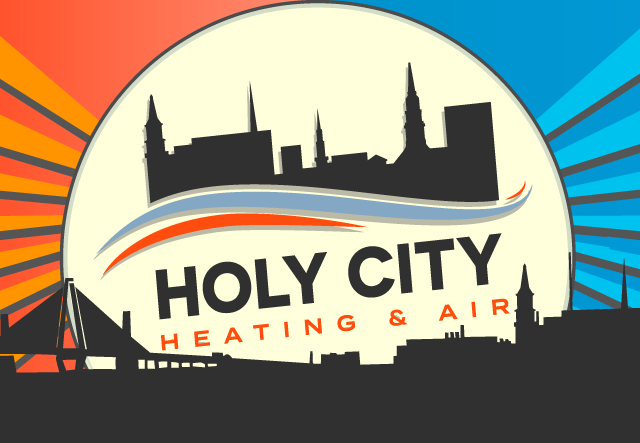Choosing the perfect heating system for your home is a crucial decision with long-term implications on your family’s comfort and well-being, as well as your overall energy costs. With a myriad of options available in the market, selecting the right one can seem daunting. Here, we will help you navigate the numerous factors to consider while making this important decision.
Factors to Consider When Choosing a Heating System
When selecting a heating system, several factors come into play. Let’s look at each of these factors to ensure you make the right choice for your home.
- Climate: Your region’s climate is a critical aspect to evaluate when making a decision. Colder climates typically require a more powerful heating system, while warmer climates may only need supplemental heating during specific months.
- Fuel Source: Consider the availability and cost of different fuel sources in your area, such as natural gas, electricity, propane, or oil. The fuel source you select will impact your system’s operating costs, efficiency, and overall performance.
- Energy Efficiency: Look for heating systems that offer high-efficiency ratings. More efficient systems will not only lower your energy bills but also minimize your environmental impact.
- Home Size and Insulation: The size of your home and its insulation levels will help determine the capacity and type of heating system required to maintain comfortable temperatures efficiently.
- Budget: Your overall budget will play a significant role in your decision. Consider both the upfront costs of purchasing the system and the long-term operating costs.
Types of Heating Systems
There are several types of heating systems available, each with its advantages and drawbacks. Familiarize yourself with these options to make an informed choice.
1. Furnaces: Furnaces are the most common type of heating system in the United States. Also known as forced-air systems, they heat air and distribute it throughout your home using ductwork and vents. Furnaces can be powered by various fuel sources, including natural gas, oil, or electricity.
- Pros: Widely available, several fuel source options, compatible with most existing ductwork
- Cons: Potential for uneven heating, ductwork maintenance, and air quality concerns
2. Boilers: Boilers use heated water or steam to distribute heat throughout your home via pipes and radiators. Like furnaces, boilers can be powered by various fuel sources.
- Pros: Quiet operation, consistent heating, better air quality
- Cons: Slower to heat up, relatively expensive initial cost, incompatibility with some existing systems
3. Heat Pumps: Heat pumps are energy-efficient units that transfer heat from the outdoors to the inside of your home (air-source) or from the ground to your home (geothermal). They can also work in reverse, providing cooling during the warmer months.
- Pros: Energy-efficient, multifunctional (heating and cooling), lower operating costs (especially geothermal)
- Cons: Higher upfront costs, limited effectiveness in extreme cold climates (air-source)
4. Ductless Mini-Split Systems: Ductless mini-split systems consist of individual air-handling units installed in specific rooms or zones, each connected to an outdoor compressor. They can provide both heating and cooling capabilities without requiring ductwork.
- Pros: Energy-efficient, zoned temperature control, no ductwork required
- Cons: Higher upfront costs, potential for uneven heating between rooms, may require multiple units for larger homes
Comparing Efficiency Ratings
Energy efficiency should be a key consideration when choosing a heating system. Be sure to compare efficiency ratings, such as the Annual Fuel Utilization Efficiency (AFUE) for furnaces and boilers or the Seasonal Energy Efficiency Ratio (SEER) and Heating Seasonal Performance Factor (HSPF) for heat pumps. Higher ratings indicate increased efficiency and can lead to lower operating costs over time.
Choosing the Right Size
It’s essential to select a heating system appropriately sized for your home. Systems that are too small may struggle to maintain comfortable temperatures, while oversized systems may cycle on and off too frequently, leading to higher energy consumption and reduced system lifespan. Consult with a Holy City HVAC professional HVAC contractor to evaluate your home’s heating requirements and recommend the right size system for optimal efficiency and performance.
Professional Guidance and Installation
Once you have explored your options and considered the factors affecting your heating system choice, consult with one of our professional HVAC technicians. They can provide personalized recommendations based on your home’s unique needs and assist in the installation process, ensuring that your system runs efficiently and effectively.
At Holy City Heating & Air, LLC, we specialize in AC installation, repair, heating maintenance, plumbing, and ductless HVAC services in Charleston, SC. Our team of experienced technicians can help guide you through the process of selecting the ideal heating system for your home, ensuring a seamless installation and long-lasting comfort.
Make the Right Choice for Your Home with Holy City Heating & Air, LLC
Choosing the right heating system for your home involves evaluating multiple factors such as climate, fuel source, energy efficiency, home size, and insulation. By understanding the advantages and drawbacks of various heating system options, you can make an educated choice that best suits your needs and budget. Trust our experts at Holy City Heating & Air to provide personalized guidance and professional installation services in Charleston, SC.
Looking for heating services in Charleston? Look no further than Holy City Heating & Air, LLC! Our comprehensive guide will help you choose the perfect heating system for your home. Call us today to schedule an appointment and get your home ready for the season with our top-notch heating services!






